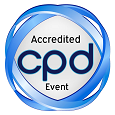
Ismail Murat Palabiyik
Associate Professor
University of Ankara
Turkey
Biography
Assoc. Prof. Dr. Ismail Murat Palabiyik graduated from Faculty of Pharmacy, University of Ankara and obtained PhD from Department of Analytical Chemistry, Facult of Pharmacy, University of Ankara. Currently, he is working in same department. His current researches are synthesis and characterization of nanoparticles, DNA – drug interactions, investigating of anticancer effects of natural plant compounds, developing analytical techniques for drug analysis from dosage forms and biological fluids using with capillary electrophoresis, high performance liquid chromatography, spectrofluorimetry and UV spectrophotometry. Beside this, for investigating effects of experimental factors on analysis in HPLC and CE methods, he utilized Response Surface Methodology (RSM). Also, he is specialized in chemometry and worked one year in department of pharmacology and studied diabetes treatment. He is a Visiting Scholar, Katholieke Universiteit Leuven, Faculty of Pharmacy, Laboratory of Pharmaceutical Chemistry and Drug Analysis and worked with Professor Jos Hoogmartens group in liquid chromatographic column characterization. During his MSc and PhD period, he took a fellowship from TÜBİTAK – BİDEB, The Scientific Research and Technological Council of Turkey. His PhD thesis was awarded by University of Ankara. He is an editorial member of Pharmaceutica Analytica Acta and Pharmaceutical Regulatory Affairs:Open Access. He is a reviewer for journals like Journal of Pharmaceutical and Biomedical Analysis, Journal of AOAC International, Talanta, Journal of Liquid Chromatography & Related Techonogies, Spectrochimica Acta Part A.
Research Interest
1. Synthesis and Characteriztion of Nanoparticles, DNA – Drug interactions. 2. Investigation of anticancer effect of natural plant compounds. 3. Drug Analysis in Dosage Forms and Biological Samples: Development and validation of new analysis methods for simultaneous determination of drug mixture using capillary electrophoresis, high performance liquid chromatography, spectrophotometry and spectrofluorimetry. 4. Chemometry: Simultaneous determination and analysis of drug mixture using chemometric techniques (Classical Least Squares, Inverse Least Squares, Principal Component Regression, Partial Least Squares. 5. Method Optimization: Using statistical and mathematical techniques (Response Surface Methodology, Artifical Neural Network, etc.) for developing, improving and optimizing processes and interpreting the relationship between response and factor effects.

